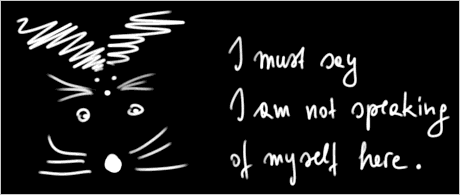Usability of non-knowledge
January 29th, 2007Knowledge may be defined in many ways. Sure, quite a number of people writing and talking about knowledge do not even care about defining knowledge (sorry no references here in order to protect the innocent). Moreover, one might deny the existence of varying definitions, though, I — personally — would see this as a sign of a view on knowledge differing from my own view.
Apparently, some people take the delicate concept of disfinism a step further: We do not know what knowledge is, therefore, naturally, let’s do research on non-knowledge, respectively ignorance and the unknown. (Mind you, I am not talking of myself I am just a liar.) Of course, this research shall add to the existing (scientific) knowledge (in contrast to existing non-knowledge).
As a side note, here is one more hint on why disfinism is a safe bet: As long as one does not define the concepts one’s work is based on, or the area to which one’s work applies, one can carelessly produce whatever others buy (or even do not buy). And they will, because consistency rules.
But is it of any use? The work? The knowledge? This blog?
You might well ask! As an example, let’s provide a definition for knowledge. Say, knowledge is what can be put into use, and what leads to something useful. In this sense, we may want to define non-knowledge as what cannot be put into use, or is useless (not to mention that this definition could come in useful). Please note that this is only an example of perhaps minor use — depending on your definition of use. Also, you might want to limit this definition’s scope to what is nonphysical.
What happens as you start gathering (useful) knowledge while you try not to accumulate non-knowledge, while you try to separate what is useful from what is useless, while you weed out ignorance, while you warn your fellows of possible non-knowledge, intended ignorance, and the temporally unknown?
Here is an answer by Bill Watterson’s character Calvin:
The more you know, the harder it is to take decisive action. Once you become informed, you start seeing complexities and shades of gray. You realize that nothing is as clear and simple as it first appears. Ultimately, knowledge is paralyzing.
Being a man of action I can’t afford to take that risk.
Is this knowledge useful? It’s hard to decide, isn’t it!?

 Corollary
Corollary
